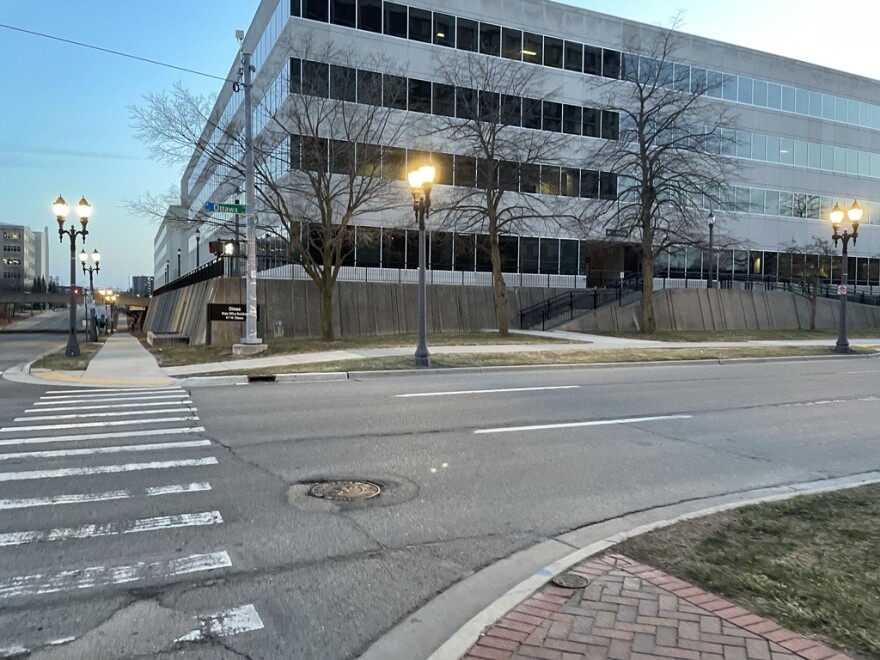Lansing is set to begin redesigning two major thoroughfares this year, adding new options for pedestrians and cyclists.
The city held a briefing Thursday to lay out construction plans over the next year. Beyond maintenance of local streets, officials have reconfigurations in the pipeline that they say will improve transportation options along Lansing's corridors.
Michigan Avenue

Lansing expects to begin updating a water main and resurfacing a nearly two-mile stretch of Michigan Avenue from Pennsylvania Avenue to Clippert Street.
The new design will remove an eastbound driving lane and use the space to create a center turning lane and bike lanes.
Andy Kilpatrick, Lansing's Public Service Director, said the new design is geared towards matching lower traffic volumes on the corridor.
A previous configuration originally had the designated bike lanes separated from car traffic by parking and trees. After costs ballooned for that proposal, Kilpatrick said the city modified the design, with the cycling lanes now buffered and adjacent to vehicle lanes on parts of the road.
"What we really don't want is to say a sidewalk is a bicycle facility, because that is for pedestrians and folks in wheelchairs and strollers and everything else," Kilpatrick said. "It's best to have the cycling facility separate, whether it's in the road or off the road.”
Kilpatrick said the city is also working with state officials to resurface an eastern section of Michigan Avenue by the Red Cedar development to improve connections to East Lansing and the Michigan State University campus.
The Michigan Avenue project has a price tag of around $14.1 million and will partially be paid for with federal funding. The redesign is expected to continue into next year.
A public open house on the project is scheduled for next Tuesday, March 5 from 4-6 p.m. at the Foster Community Center.
Martin Luther King Jr. Boulevard

This spring, as part of a sewer separation project, Lansing aims to reconfigure parts of Martin Luther King Jr. Boulevard between Ionia and St. Joseph Streets with the removal of some car lanes and a center median.
Some residents have expressed concerns about the removal of trees for the project. Kilpatrick said they will be replanted to the side of the street, with the new design expanding green space on Lansing's Westside.
"I think it's sort of beneficial to the neighborhoods there because I think most people wouldn't want to live on what they feel is more like a high-speed roadway, more like a highway."
Kilpatrick said the project will cost around $3 million and the city hopes to have it completed during the fall. An open house is being held on Thursday at the Letts Community Center.
Two-way street conversions

Following construction on MLK, officials plan to convert Allegan and Ottawa Streets, which connect downtown to the state Capitol building and the Westside neighborhood. The re-design would change them from one-way to two-way streets, integrating them with other streets that received the same change.
“The main reason for that was just to improve direct access so you're not going around blocks," Kilpatrick said. "A lot of times for people that aren't familiar with downtown Lansing, one-way streets are confusing.”
New multi-use pathway
Crews are expected to pave a 2.3 mile multi-use pathway in South Lansing to connect to the River Trail network.
The pathway will pass through the Fenner Nature Center and Evergreen Cemetery, concluding at Discovery Lane and Collins Road. The project is estimated to cost around $1.5 million, with construction slated to start in the spring.


